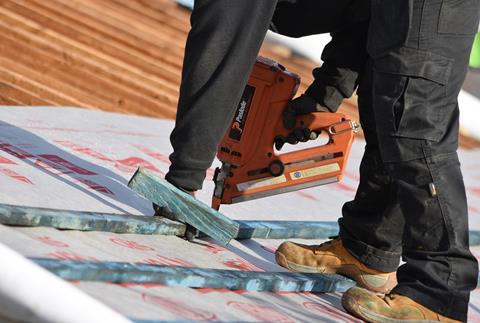Housing association has been urged to improve its decant policy, as well as its repairs and complaints handling
The Housing Ombudmsan has issue a ‘wider order’ requiring Peabody to review its overall approach to relocating tenants during repairs and prevent future service failures by improving its policies and practices.
This followed an independent review ordered by the watchdog after it investigated a resident’s complaint that they had been placed in hotel rooms for 18 months.
The subsequent review identified shortcomings in the landlord’s decant policy, which was not properly followed, resulting in a lack of empathy and effective communication with residents.
It also recommended reviewing the type of accommodation provided to decanted tenants.
The review revealed that, since February 2021, 180 Peabody residents have been moved into alternative accommodation while damp and mould issues are repaired in their homes.

In six cases, the residents were moved into another property for more than 300 days.
>> See also: Ombudsman finds severe maladminstration at 13 social landlords due to window repair delays
>> See also: Half of complaints referred to the Ombudsman are from social housing tenants in London
The Ombudsman’s report stated that it was unclear whether the resident’s home met the landlord’s voids standard before being rented out and that the resident’s vulnerabilities were “not fully recognised which led to significant distress and loss of enjoyment for the resident.”
There were also several delays in handling the case because not all necessary repairs were included in the schedule of works. In addition, the Ombudsman said that inadequate post-work inspections meant there were still outstanding issues when the resident returned to their property.
The review also found that repairs were poorly planned and of low quality. It noted a lack of ownership and coordination between teams, as well as inconsistent surveying skills.
While it acknowledged that many staff members were helpful and focused on residents, others were not.
The review noted that multiple contractors provided conflicting information to tenants, and the resident’s direct involvement in managing contractors and defining the scope of work caused delays and confusion.
The Ombudsman has stated that this issue will be addressed in an upcoming spotlight report, with a call for evidence currently open.
Among the 31 recommendations put forward by the independent review were for the landlord to:
- Make a formal assessment of any mental health or other issues at the start of a tenancy. Based on expert advice, the landlord can create a plan for how best to take account of these issues
- Review and expand the Vulnerable Persons Policy, including learning from this case and the findings and recommendations of the Ombudsman’s Spotlight report on attitudes, Respect and Rights
- Consider reviewing its repairs surveying competence and/or of the adequacy of its framework, such as procedures (including in relation to documenting findings), guidelines, training and supervision
- Establish a policy in relation to sharing with tenant’s copies of survey reports relating to their property
- Review the communication plan a surveyor has with the resident before, during and after the works are completed to ensure that all parties are aware of the works being carried out, why and what resolution looks like
Richard Blakeway, the Housing Ombudsman, said that reviews of landlords’ practices beyond the initial complaint help to uncover changes that are needed to improve residents’ lives in the future.
“The review is clear about the weaknesses in approach which could impact other residents and we will continue to work with the landlord to see how it embeds the recommendations.
Blakeway added: “The landlord is open about the improvements it is making and only by making these changes will the need for residents to raise future complaints be reduced.
“There is plenty of learning in this for other landlords too, in particular around extended decants, voids and the sign-up process for lettings.”
He said that these wider order powers are being used to ensure landlords are learning from complaints and joining the dots between failings in different cases.
He added: “It is also positive that the landlord is involving residents in the review of the report and we would encourage that engagement to continue as it looks to improve its response to repairs and complaints handling.”
Ian McDermott, chief executive of Peabody, said: “We didn’t give this resident the level of service we’re striving for and we’re very sorry we let her down. We apologised to her in person, paid her compensation, and have completed all the repairs needed in her home.
McDermott said that Peabody has made significant changes to its structures in the past few years, with local neighbourhood teams in place to support residents.
He added: “We’re more focused than ever on ensuring every resident’s home is safe and well maintained from the day they move in, and that we keep disruption to a minimum for residents by doing repairs swiftly and efficiently.”
He says Peabody now spends an average of £1m per day on its existing homes.
>>See also: In search of a magic patch size: How social landlords are rethinking their housing management approaches
He continued: “Both the ombudsman and independent report we commissioned have shed light on areas where we fell short and where we still need to improve, and we will carry on working hard to address these shortcomings.
“We’re improving our repairs services and how we communicate with residents, especially when there are issues. These priorities, along with the recommendations from the reports, are at the core of our plans for improvement and overall change.
“We’ll keep revisiting these plans to make sure we’re continuing to make progress and maintain high standards for residents.”
The Ombudsman’s powers to issue a wider order are part of a range of interventions that the watchdog uses to address areas of repeated service failure. The order also aims to help residents who may not have complained but have experienced similar failings.











No comments yet